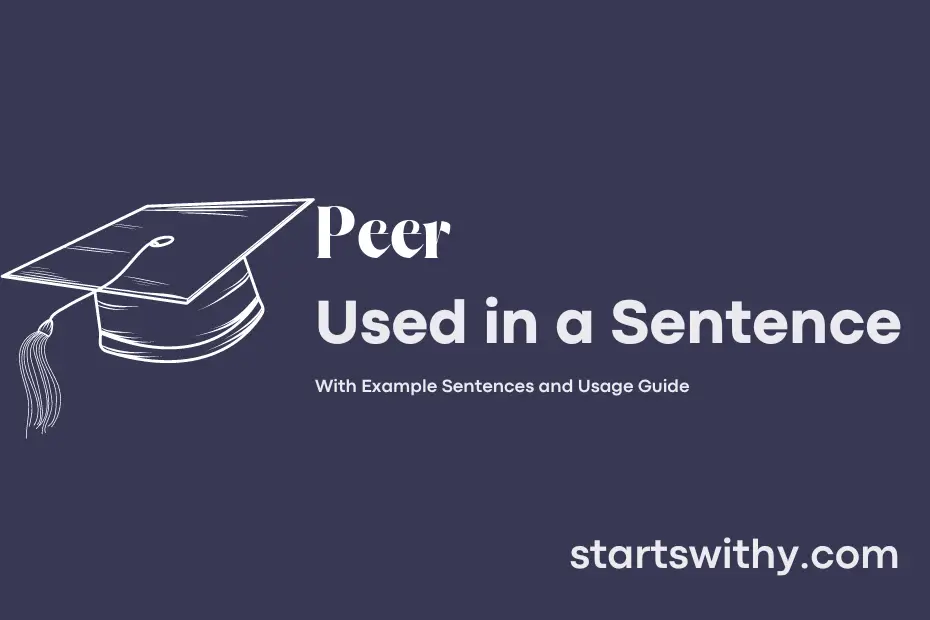Do you ever find yourself confused about when to use “peer” in a sentence? The term “peer” refers to someone who is of equal status, ability, or age as another individual.
When constructing a sentence with “peer,” it is important to consider the context in which it is being used and ensure that the comparison or relationship between individuals of similar standing is clearly conveyed.
7 Examples Of Peer Used In a Sentence For Kids
- My peer helped me tie my shoelaces.
- I read a story to my peer in class.
- We played games with our peers during recess.
- My peer shared their snacks with me.
- I gave a high five to my peer after we finished our activity.
- We sat next to our peers during the assembly.
- I asked my peer for help with my homework.
14 Sentences with Peer Examples
- peer pressure can be detrimental to one’s mental health.
- It’s important to have a good relationship with your peers in college.
- Collaborating with your peers on group projects can make the workload more manageable.
- Seeking feedback from a peer can help improve your assignment.
- Don’t be afraid to ask your peers for help when you’re struggling with a difficult concept.
- Engaging in healthy competition with your peers can motivate you to excel academically.
- Forming study groups with peers can enhance your learning experience.
- A supportive peer can be a valuable source of emotional support during stressful times.
- Building a network of peers can open up opportunities for internships and job placements.
- Providing constructive criticism to a peer can help them grow and improve.
- Peers can offer valuable insights and perspectives from different backgrounds and experiences.
- Utilizing online forums to connect with peers can expand your knowledge beyond the classroom.
- Sharing notes and study materials with peers can help everyone succeed in their academics.
- Forming strong relationships with peers can lead to lifelong friendships and professional connections.
How To Use Peer in Sentences?
Peer is used to refer to someone who is of equal standing to you, typically in age, status, or ability. When using Peer in a sentence, you should consider the context and make sure it makes sense within the conversation.
For example, “I discussed the project with my peer before presenting it to the boss” indicates that you consulted someone who is at the same level or has similar expertise as you. It is important to use Peer correctly to convey the right meaning in your communication.
When writing an academic paper, you might refer to “previous studies by peers in the field” to acknowledge the work of other researchers who are considered equals in the discipline.
In a social setting, you could say “I enjoy hanging out with my peers from work” to indicate that you like spending time with colleagues who are on the same professional level as you.
The key is to understand the relationship between individuals and the context in which you are using the word peer. By doing so, you can effectively communicate with others and show that you are aware of the dynamics between people of equal status.
Conclusion
In conclusion, sentences with the keyword “peer” highlighted the importance of collaboration, feedback, and shared experiences among equals. These sentences showcased how peers can provide valuable insight, support, and perspective, leading to personal growth and improved outcomes. Whether in academic settings, professional environments, or social groups, interacting with peers encourages mutual learning and development.
By emphasizing the significance of peer relationships, these sentences illustrate the power of teamwork, cooperation, and camaraderie. They underscore how peers can challenge, inspire, and inspire one another to achieve common goals and overcome obstacles. Ultimately, the examples provided demonstrate that peer interactions are essential for building connections, fostering empathy, and promoting a sense of community among individuals striving towards common objectives.



